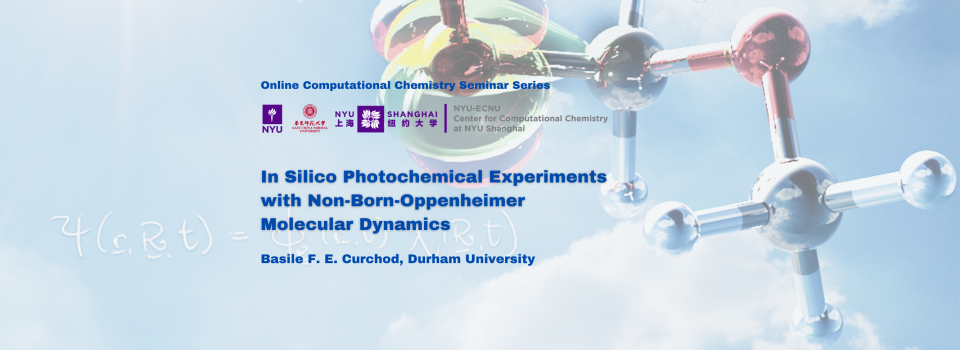
Abstract
What happens to a molecule once it has absorbed UV or visible light? How does the molecule release or convert the extra energy it just received? Answering these questions clearly goes beyond a pure theoretical curiosity, as photochemical and photophysical processes are central to numerous domains like energy conversion and storage, radiation damages in DNA, or atmospheric chemistry. Different theoretical tools have been developed to address these questions by simulating the excited-state dynamics of molecules. Two examples of such methods include ab initio multiple spawning (AIMS) and trajectory surface hopping (TSH). AIMS describes the dynamics of nuclear wavepackets using adaptive linear combinations of traveling frozen Gaussians. TSH portrays the nuclear dynamics with a swarm of independent classical trajectories that can hop between potential energy surfaces for this task.
In this talk, I intend to survey some of our recent work aiming at understanding the approximations underlying AIMS and developing new approximate techniques based on the multiple spawning framework. I will also discuss the application of nonadiabatic methods to unravel the photochemistry of molecules in gas phase, focusing on (i) the calculation of photolysis rate constants for transient atmospheric molecules and (ii) the investigation of athermal ground-state dynamics following the passage through a conical intersection.
Biography
Basile F. E. Curchod was born in Vevey (Switzerland) and has been profoundly intrigued by the interaction between light and molecules since his studies at EPFL (Switzerland). During his Ph.D. at EPFL with Ivano Tavernelli, he worked on developing theoretical tools to better understand photochemical reactions, that is, chemical reactions triggered by light. He carried on his research on this topic during two postdoctoral stays, one at Stanford University (USA) with Todd Martínez and the other at the Max Planck Institute in Halle (Germany) with Hardy Gross. He then moved to Bristol (UK) as a Marie Skłodowska-Curie Fellow to work alongside experimentalists, applying his theoretical methods to understand the mechanistic details of some photochemical processes. In November 2017, he created the In Silico Photochemistry Group at Durham University (UK).
Seminar Series by the NYU-ECNU Center for Computational Chemistry at NYU Shanghai


